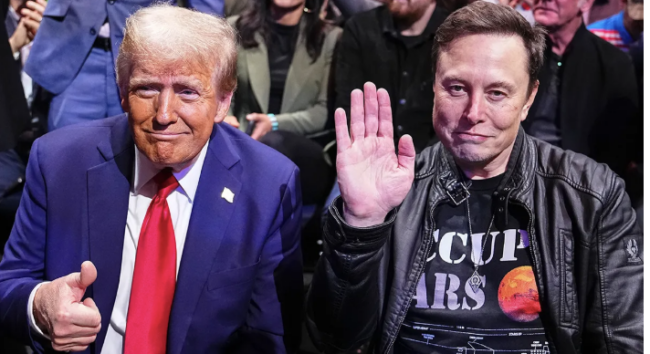Elon Musk is no longer just a household name for electric cars and space travel. The billionaire entrepreneur has become an influential political force in the United States, a role that is as controversial as it is unprecedented. Once known mainly for leading Tesla and SpaceX, Musk now invests millions of dollars and shares countless tweets to shape political debates and government policy. He also heavily influences the decision making of President Donald Trump.
Musk’s political involvement has grown rapidly in recent years. Once a moderate donor supporting candidates on both sides of the aisle, he has shifted his focus almost entirely toward backing Republican causes. In recent months, Musk has poured substantial funds into former President Donald Trump’s re-election campaign. In fact, reports indicate that he has spent over $250 million on initiatives such as America PAC, a super PAC designed to boost Trump’s chances, including innovative strategies like offering Pennsylvania voters cash prizes for signing petitions supporting free speech and gun rights.
Beyond financial contributions, Musk uses his social media platform, X (formerly Twitter), as a megaphone for political messaging. His posts have the power to mobilize millions of followers almost instantly. For example, after endorsing Trump following a near-assassination attempt, Musk’s tweets played a central role in rallying support and even contributed to derailing a bipartisan government spending bill that critics called “a Democrat giveaway.” His ability to shift public discourse through hundreds of posts has led some lawmakers to dub him “the shadow president” of a new political era.
Musk’s influence extends beyond campaign donations and social media clout. President-elect Trump has tapped him to help lead a new initiative known as the Department of Government Efficiency (DOGE). Though not a traditional government agency, DOGE aims to identify wasteful spending and reduce federal regulations– changes that many believe could benefit Musk’s own business interests. Critics, however, warn that appointing an unelected billionaire with deep ties to government contracts raises questions about potentially serious conflicts of interest and ethical concerns.
The billionaire’s charge into politics has sparked debate both in the U.S. and abroad. In the United Kingdom and Europe, Musk’s outspoken support for far-right political groups and his attacks on left-leaning leaders have further stoked controversy. His global ambitions to reshape political discourse are seen by some as an attempt to consolidate power across borders, a move that, critics argue, could erode democratic institutions.
In Pennsylvania, a key battleground state, Musk’s strategy was particularly concrete. He organized high-profile town halls, used innovative (and sometimes legally questionable) voter incentive programs and drew massive media attention to his initiatives. His “Pennsylvania Playbook” was designed to energize voters through a mix of financial incentives and passionate rallies, blending traditional political organizing with modern digital tactics.
For high school students watching the political landscape evolve before their eyes, Musk’s rise poses pressing questions. How do vast amounts of money and social media influence reshape politics? Is it fair for a private citizen with interests in multiple industries to wield such power over public policy? And what does it mean for the future of democracy when technology, money and government become so deeply intertwined?
While opinions on Musk’s political influence vary widely, from seeing him as a visionary disruptor to condemning his methods as a threat, the debate itself highlights how the digital age is reshaping traditional power structures. Whether you agree with his approach or not, there is no denying that Elon Musk is redefining the rules of political engagement in America. By taking on roles that blur the lines between business and government, Musk has created a new kind of political playbook. One that relies on direct public engagement, massive donations and the speed of digital communication.






